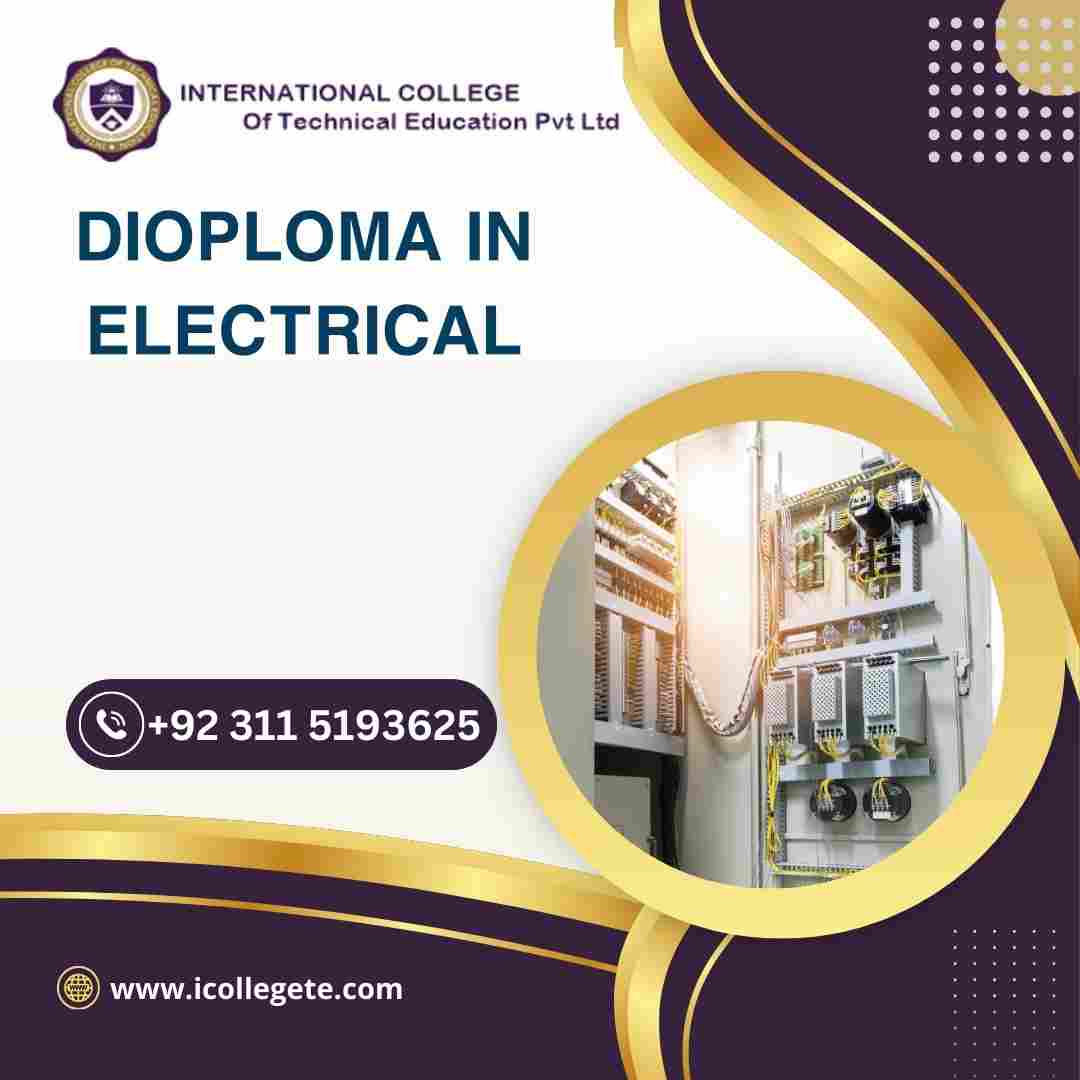
Diploma in Electrical Rawalpindi Islamabad Pakistan
The Diploma in Electrical Engineering is a comprehensive program designed to equip students with the fundamental knowledge and practical skills necessary to pursue a successful career in the electrical industry. The course is carefully crafted to cover essential aspects of electrical engineering, including electrical systems, power generation, distribution, electronics, and renewable energy technologies. Students will gain hands-on experience and theoretical knowledge to solve real-world electrical engineering challenges.
Course Benefits:
- Practical Skills: Students will develop a strong foundation in electrical engineering principles and gain hands-on experience through laboratory work and industry placements.
- Industry Relevance: The course is designed in collaboration with industry experts, ensuring that students acquire the knowledge and skills that are currently in demand.
- Career Opportunities: Graduates of this program will have a wide range of career options, including electrical technician, maintenance engineer, electronics specialist, and renewable energy technician.
- Personal Growth: The course will foster problem-solving abilities, analytical thinking, and teamwork, making graduates well-rounded professionals.
- Continuing Education: This diploma serves as an excellent stepping stone for further education and specialization in electrical engineering.
Course Learning Outcomes:
By the end of the Diploma in Electrical Engineering, students will be able to:
- Demonstrate a solid understanding of electrical circuits and systems.
- Analyze, design, and troubleshoot electrical circuits and devices.
- Apply knowledge of electrical principles to work safely and efficiently with electrical systems.
- Implement sustainable and renewable energy technologies.
- Utilize electrical and electronic tools and software for engineering applications.
- Work effectively as part of a team and communicate technical information clearly.
Course Study Units:
- Introduction to Electrical Engineering
- Basic concepts and principles
- Electrical units and measurements
- Ohm’s law and Kirchhoff’s laws
- Electrical Circuits and Systems
- Series and parallel circuits
- AC and DC circuits
- Power calculations
- Electronics
- Semiconductor materials
- Diodes and transistors
- Amplifiers and oscillators
- Electrical Machines
- Transformers
- DC machines
- AC machines
- Power Generation and Distribution
- Power plants and generators
- Power transmission and distribution systems
- Substations and protection systems
- Renewable Energy Technologies
- Solar photovoltaic systems
- Wind energy systems
- Energy storage technologies
- Electrical Control Systems
- Programmable logic controllers (PLCs)
- Motor control circuits
- Automation and robotics
- Electrical Safety and Regulations
- Electrical safety practices
- Electrical codes and standards
- Workplace safety guidelines
Entry Requirements:
To enroll in the Diploma in Electrical Engineering, applicants must meet the following criteria:
- Minimum age of 18 years at the time of application.
- High school diploma or equivalent qualification from a recognized institution.
- Basic knowledge of mathematics and physics.
- English language proficiency, as all classes will be conducted in English.
Future Progressions:
Upon successful completion of the diploma program, graduates will have several options for future progressions:
- Employment: Graduates can begin their careers as electrical technicians, electricians, or entry-level engineering roles in various industries.
- Higher Education: Students can pursue further studies in electrical engineering or related fields, such as pursuing a Bachelor’s degree in Electrical Engineering or a specialized area like Power Systems, Electronics, or Renewable Energy.
- Certifications: Graduates can obtain industry-specific certifications to enhance their skills and marketability, such as certifications in programmable logic controllers (PLCs) or solar panel installation.
Conclusion:
the Diploma in Electrical Engineering offers a comprehensive curriculum covering essential topics in electrical engineering, providing students with the knowledge and skills necessary to excel in the industry. This program offers numerous benefits, including hands-on experience, industry relevance, and diverse career opportunities. Graduates will be well-prepared to make valuable contributions to the electrical engineering field and pursue further education or specialization in this dynamic and ever-evolving domain.